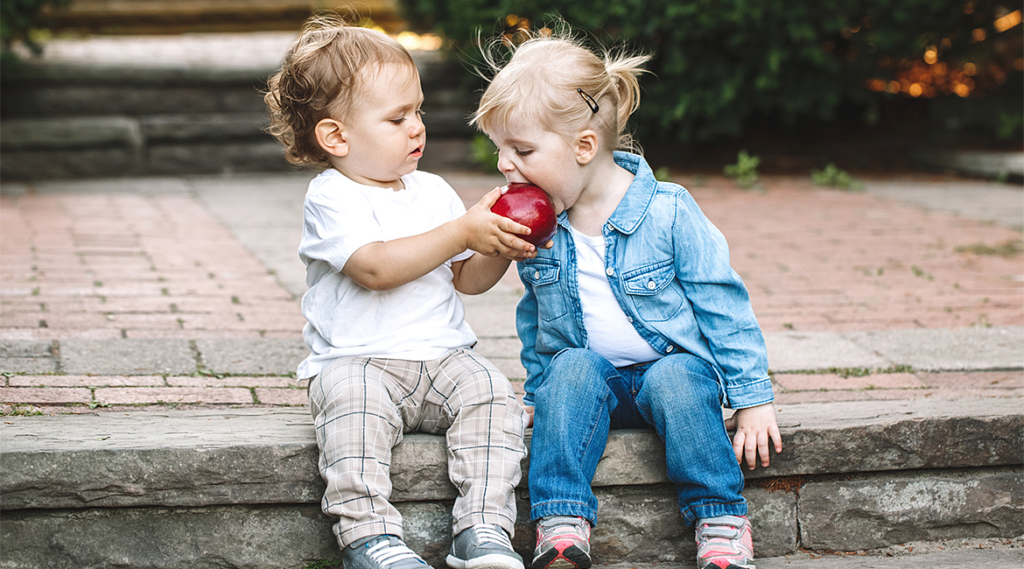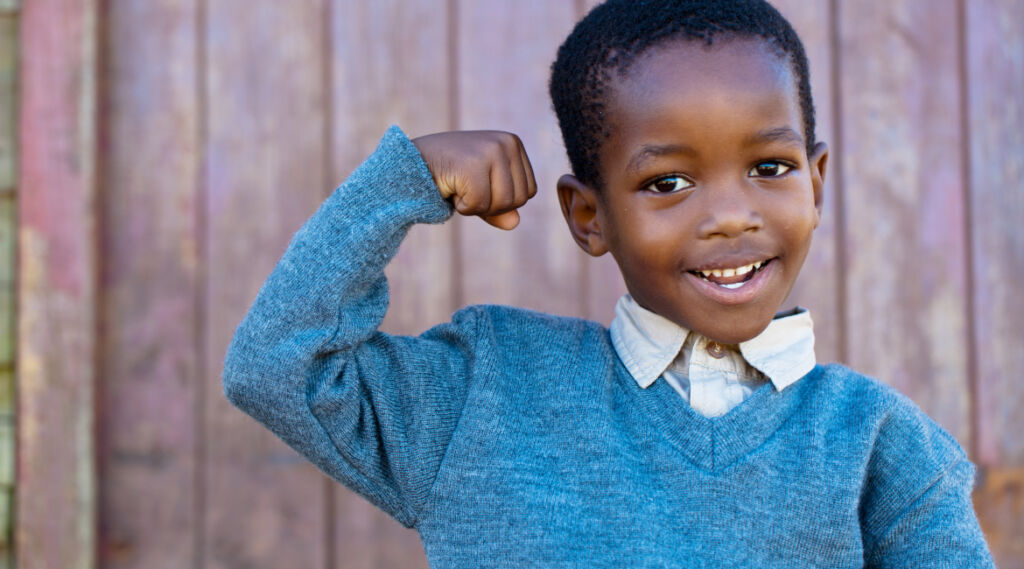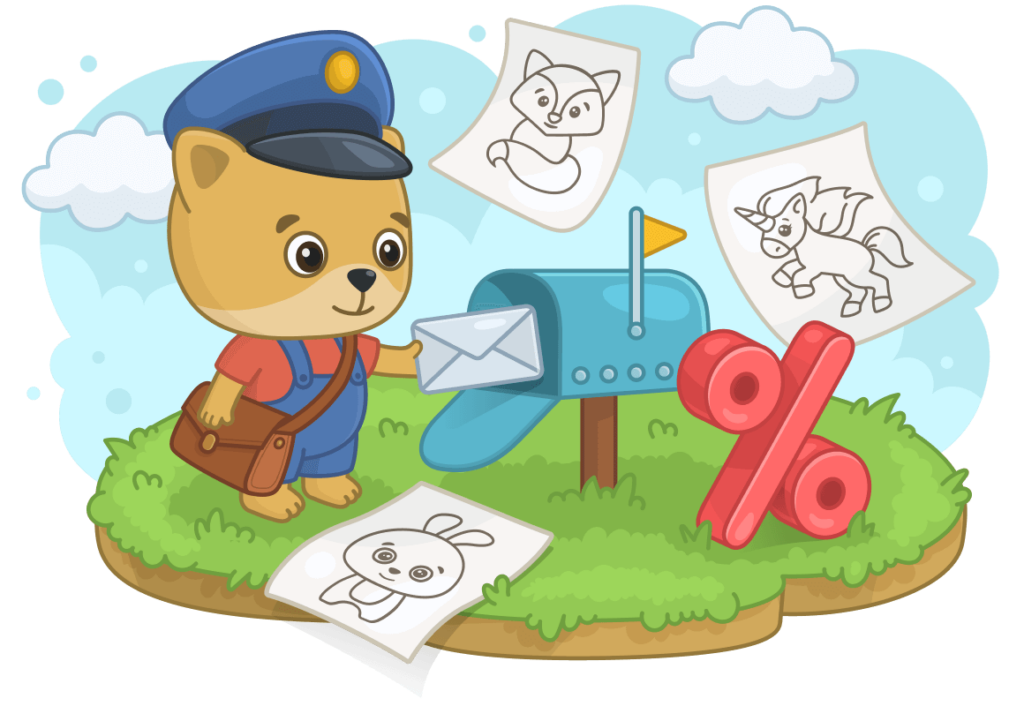I can distinctly remember the moment my oldest son asked about sharing. I had just picked him up from preschool and he could only say a few words. “Mommy, share?” he said. “Yes, Share!” I replied. “Share?” he asked with his little tiny head tilted to the side. “Yes, baby, we have to share,” I reminded. “Ugh. Share?” he ended. I could tell from an early age that he had learned about this sharing thing and he wasn’t thrilled with it. The next few years would be a testament to the fact that he absolutely hated sharing. When we would leave to go to a playdate, he would say, “But will I have to share?” or “Why does she want to play with all of my toys? I don’t like to share with her.”
My husband and I have always considered ourselves to be generous, caring people. So how was it possible we had birthed a tiny little toy hoarder who didn’t want or care about sharing with others? Was this a precursor for the rest of his future? Would he grow up to be a Grinch or even worse, Scrooge himself? Being the overly anxiety-ridden parent that I am, the first thing I did was research all of the information out there in the world about what it meant that my little one didn’t want to share and what we could do to help the problem. Here’s what I found out:
The Age of Sharing
One research study presented at The Society for Research in Child Development and the International Conference on Infant Studieswas entitled “Mine or Yours? Development of Sharing in Toddlers in Relation to Ownership Understanding.” The study concluded that children under 24 months of age were sharing mainly based on pleasing adults rather than developing their own reasons for sharing displaying that they understood the needs and feelings of the other child. As a child grows, up until the age of six, it can be hard for them to show true empathy for others. Though some may develop these skills early and others later, the process of sharing is greatly affected by what the child is currently understanding in their own worlds. For the first few years of life, they are focused on what belongs to me and what belongs to you as a way to determine their independence and their sense of self. This makes it hard for children to give up a toy or item that is dear to them and developmentally, that’s okay.
Focus on Sharing at Home
I also learned that even though his age rendered him absolutely awful at sharing, it was still very important to model sharing behavior at home and show him that we still thought sharing was a vital skill for him to learn. To help, we would get all excited about opportunities to share in our household. We would point out sharing moments like, “Look I’m going to give you and daddy a bite of my cupcake” or we would explain why we were donating our clothes to those who needed them, “It’s so great to share things with others when they really need it.” Talking about the value of sharing was an important part of my son learning about sharing even though he was quite ready to participate.

Understanding the Need for No Sharing
Though I praised and preached about how great it was to share. I also knew that the research said that a child might not be into sharing until he’s older and that’s okay too. When he was 3 or 4, I wouldn’t overly force his need to share. If he was playing with a toy that someone else wanted, I would say, “When you’re finished playing with that toy, your friend wants to take a turn” or I would give him the opportunity to put away special toys before his neighborhood friends came over. Letting him have control over his own little world, allowed him to be more at ease when it came to sharing his toys with others. It was kind of a give or take that was okay for everything and allowed him to establish boundaries and independence. Though he still wasn’t sharing any and everything, I could see a noticeable improvement on the sharing front. We also spent a lot of time with a friend who overly-shared all of the things. Eventually, my son realized it felt nice when his friend would share with him. Peers have a way of working these types of things out if we just kind of step back a bit and give them a chance to.
Give Choices
According to a Cornell University Research Studied that’s published in the Journal of Psychological Science, entitled “Giving Preschoolers Choice Increases Sharing Behavior,” giving children the choice to share as opposed to forcing them to share reaps better results. Children were asked to share a sticker with a sad puppet or keep the sticker for themselves. Another group of children was made to give the sticker to the puppet. On repeat, when children were given three stickers and asked to share them with the puppet or keep some for themselves, the group of children that were given a choice, were more likely to give the puppet more stickers. Innately, as a society, we learn that sharing is an important part of survival. To it’s earliest roots, we shared to find food or to battle the cold weather. Today, we still share to help with school and in family life. This is something that children learn and understand as they grow and become active members of society. Once their vision of self-turns from inward to outward, they begin to relate and understand the feelings of others. Like a golden flow of honey, sharing just comes forward.
So what about my kiddo? Is he doomed for a life of self-absorbing behavior? Well. He just turned six and the other day he received two duplicate presents for his birthday. “What do you think we should do about that present?” I asked, sure that he would say, “Keep it. Save it. I’ll play with both.” To my utter shock and amazement, he said, “Oh, we can just donate it, mom. For the kids that don’t have one.” The ultimate in sharing. Mom Mission Accomplished!
Sources:
– National Institutes of Health. Celia A. Brownell, Stephanie S. Iesue, Sara R. Nichols, and Margarita Svetlova. “Mine or Yours? Development of Sharing in Toddlers in Relation to Ownership Understanding.” Published online 2012 Nov 12.
– Cornell Chronicle. Social & Behavioral Sciences. Lowery, George. “Research finds kids share when it’s done by choice.” August 2013.
About the Author:
Tracy E. Brown is a journalist and educator with over 14 years of experience working in the field of Child Development. She is currently the Assistant Editor of Black Dress/Red Wagon Magazine in Atlanta, Ga. and previous Associate Editor at Pregnancy & Newborn Magazine. She previously taught preschool at the Goddard School in Farragut, Tennessee and taught Kindergarten for Dekalb County Schools in Atlanta. Other writing credits include the Green Building Research Institute, London’s facetheory.com, WBIR Channel 10 News, PBS, Duke University and American Airlines. She is also a mom to three adorable little ones.



